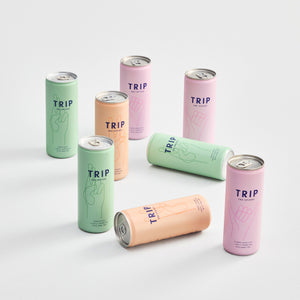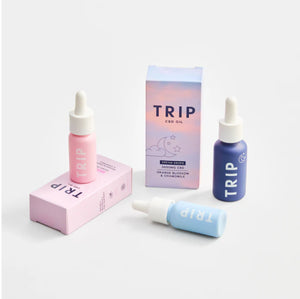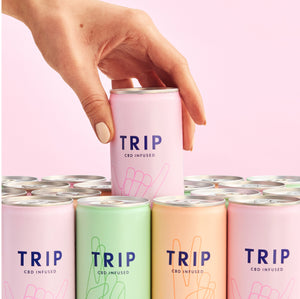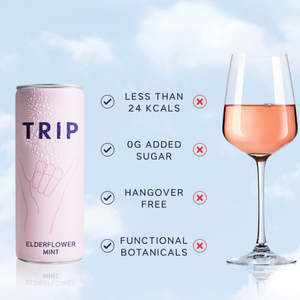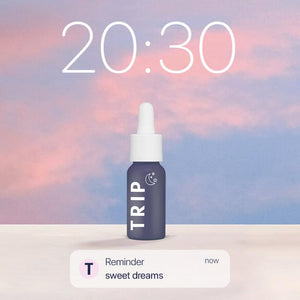Is it legal for athletes to take CBD?
In a word, yes. In the UK, CBD is completely legal. What’s more, the World Anti-Doping Agency (WADA) — the body that decides on which substances should be prohibited for professional athletes — deem it okay to consume for athletes.
Until 2018, CBD belonged to the WADA prohibited list. However, it has since been removed, likely because of the raised awareness about the distinction between CBD and tetrahydrocannabinol (THC), the psychoactive compound in cannabis, which remains banned (although this is currently under review by WADA).
However, the law is not the same everywhere, and permission to use CBD becomes complicated because of the enduring THC prohibition in nearly all major sports organisations. It’s also still possible and historically reported that athletes or any individual who consumes CBD may test positive for THC due to trace amounts in the product, although this is very rare.
It is advised, therefore, that for an athlete undergoing drug tests on a regular basis or singular occasion, it would be best to avoid CBD. However, for full disclosure, our CBD is fully tested and completely THC-free, so there is no risk of testing positive when using TRIP products.
How does CBD work?
The way that CBD influences the human body and mind is thought to be through the endocannabinoid system (ECS). This is the network of receptors and cells in the central nervous system that regulates our internal homeostasis, or hormonal balance. The system serves as the hub for communicating various signals throughout the brain’s physiology, and consequently influencing our psychology — how we think and feel.
When consuming CBD — either by a few drops of oil under the tongue, applying it topically as a cream, or as part of TRIP’s CBD-infused drinks — it is understood that the compound influences our body’s CB1 and CB2 receptors, both of which belong to the ECS. The effect is to induce some of these therapeutic feelings mentioned earlier. While these receptors can be found throughout the body, most of them are concentrated in the brain.
What are the athletic benefits from using CBD?
Pain relief
Some users of oils, tinctures and other products have found that the compound has helped reduce exercise-related issues, such as stiff joints. There is not enough conclusive evidence on chronic pain, but it has also been reported by some that CBD has helped them with drawn-out aches and fatigues.
Some studies imply that because CBD binds to CB2 receptors, the compound may help reduce inflammation, especially after an intense workout. Another theory is that they do this by blocking the signals travelling to the part of our brain that creates the inflammatory response.
Improved sleep
Sleep is a vital part of peak athletic performance, and anecdotes from CBD users — as well as a 2020 study — suggest it may help to improve sleep time and quality. The physiological reason behind this may be because of the relationship between CBD and the reuptake of adenosine, which influences the rhythm of the heart. By incorporating CBD into your bedtime routine, you may find it easier to relax, wind down and get some easier shut-eye to prepare yourself for peak performance the next day.
Gut health
Aside from muscle inflammation, uncomfortable feelings in the gut — otherwise known as gastrointestinal (GI) distress — is one of the reasons why many endurance athletes experience discomfort during a race or other activity and end up dropping out. Although there is little conclusive research on CBD’s impact on our gut, a study involving mice with colitis suggested that it could potentially help with symptoms of inflammation in this area.
Does CBD have negative side-effects?
Most people tolerate CBD well on the whole, even in large doses, and will not encounter any side-effects. However, some side-effects that may occur include changes in appetite, weight loss, dizziness, diarrhoea and fatigue. It could also influence any other medications you're taking, such as blood thinners.
In fact, most of the side-effects that do occur will be because of interactions between CBD and other pharmaceuticals. If you take medication, be sure to touch base with your GP before you use CBD.
How much should I use?
Unfortunately, there’s a lot of conflicting information out there on different dosages and how to measure the amounts. We’d recommend looking at how much mg there is in the bottle — these are the measurements for oils, drinks, and some edibles. You may find that some brands display the CBD content as a percentage (%), but this can be easily converted through a dosage calculator.
The FSA recommends that, on a daily basis, your limit should be a cautious 70 mg of CBD. To put this into context, TRIP’s Wild Mint CBD oil contains 300 mg overall, with around 20 mg capacity in the dropper. TRIP’s range of CBD-infused drinks, on the other hand, have 15 mg per serving, which is a modest yet substantial dose, and probably the recommended way for beginners to try out CBD.
Summary
Many athletes can benefit from using CBD, such as through better sleep and reduced inflammation. CBD is completely legal and permitted by anti-doping rules. Yet in the past, a number of people have run into trouble when they come to drug-test, as some vendor’s CBD contains trace amounts of THC, which is prohibited. TRIP’s CBD, however, is lab-tested to be THC-free.
One last thing to remember: even if you’re keen to boost your performance through improving your general wellbeing — which is never a bad idea — CBD is, ultimately, a food supplement. While it may give some users relief after an intense workout, it should not be used as medicine.




